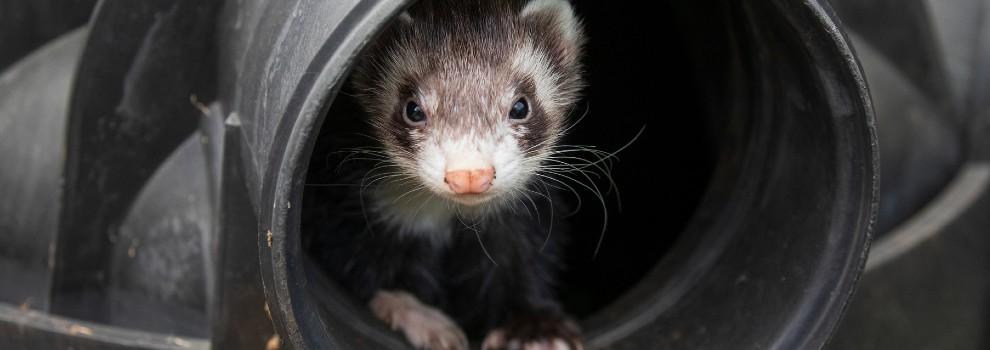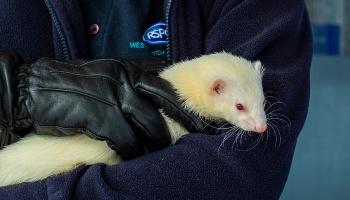Common Ferret Poisons & Poisoning Symptoms | RSPCA - RSPCA
Rodent Poisons ('rodenticides')
Anticoagulant rodenticides, such as bromadiolone, difenacoum and warfarin, act by preventing blood clotting. Not all rodenticides are anticoagulants, so it's important to check which one your ferret has eaten.
Poisoning with these may cause life-threatening bleeding, and the effects may not appear for several days. Bleeding may be internal and is therefore not always visible.
Non-Steroidal Anti-Inflammatory drugs (NSAIDs)
This group of drugs includes ibuprofen, diclofenac, naproxen and many others. Any quantity may be extremely toxic to ferrets if they eat them.
Eating NSAIDs can cause depression, weakness, tremor, vomiting, diarrhoea, bleeding from the gut, weight loss, coma and kidney failure in ferrets.
Chocolate
Never give chocolate to your ferret. Chocolate contains a stimulant called theobromine, and dark chocolate and cocoa contain high levels of it.
Symptoms include vomiting, diarrhoea, dehydration, hyperactivity, high temperature and blood pressure, abnormal heart rhythm and tremors.
Grapes, raisins, sultanas, currants
Any quantity of these can be toxic, and cooking or baking them doesn't reduce the risk. Poisoning may cause vomiting and diarrhoea and subsequently kidney failure.
Household cleaners
Many types of detergents or disinfectants can result in vomiting, diarrhoea, and severe blistering and/or ulceration of the mouth and throat, which may cause difficulties with breathing and swallowing.
Drain and oven cleaners and dishwasher products may be extremely corrosive and cause severe burns. Skin or eye contact with any of these is also a concern.
If a household chemical is:
- On your ferret's skin or fur: wash them thoroughly with lukewarm water and mild shampoo, rinse well and dry, and then take your ferret to the vet.
- In your ferret's eye: contact your vet immediately for advice about washing the eye, follow the advice and then take them to the vet urgently.
If you think your ferret has been poisoned, always contact your vet immediately.
For further information and advice visit The Veterinary Poisons Information Service (VPIS).




